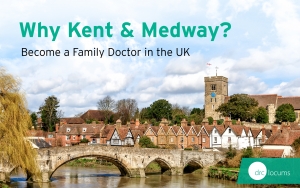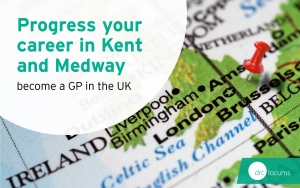Site Owner
Are you a GP looking to work in the South of England?

As part of the International GP Recruitment Programme, DRC Locums are working in partnership with NHS England to recruit GPs to work in the south of England.
The programme has a wide range of attractive benefits and as well as financial support, the scheme also offers practical and logistical support, including help finding a home, schools and other local facilities; help with day to day tasks such as setting up bank accounts and help with relocation costs. DRC Locums are with you every step of the way.
The south of England offers so much to those who work and live here. While the UK as a whole offers advantages such as free education from 5 to 18, its most southwestern counties are renowned for their relaxed, friendly way of life, and whether you see yourself living in a vibrant city full of museums and restaurants, exploring beautiful woodland and countryside or making the most of the seaside, there is sure to be something to suit you.
Contact our team today on +44 (0) 1908 545 962 for more information or click on the following link to apply now: https://lnkd.in/gMAwbrh
International GP Recruitment in South East of England
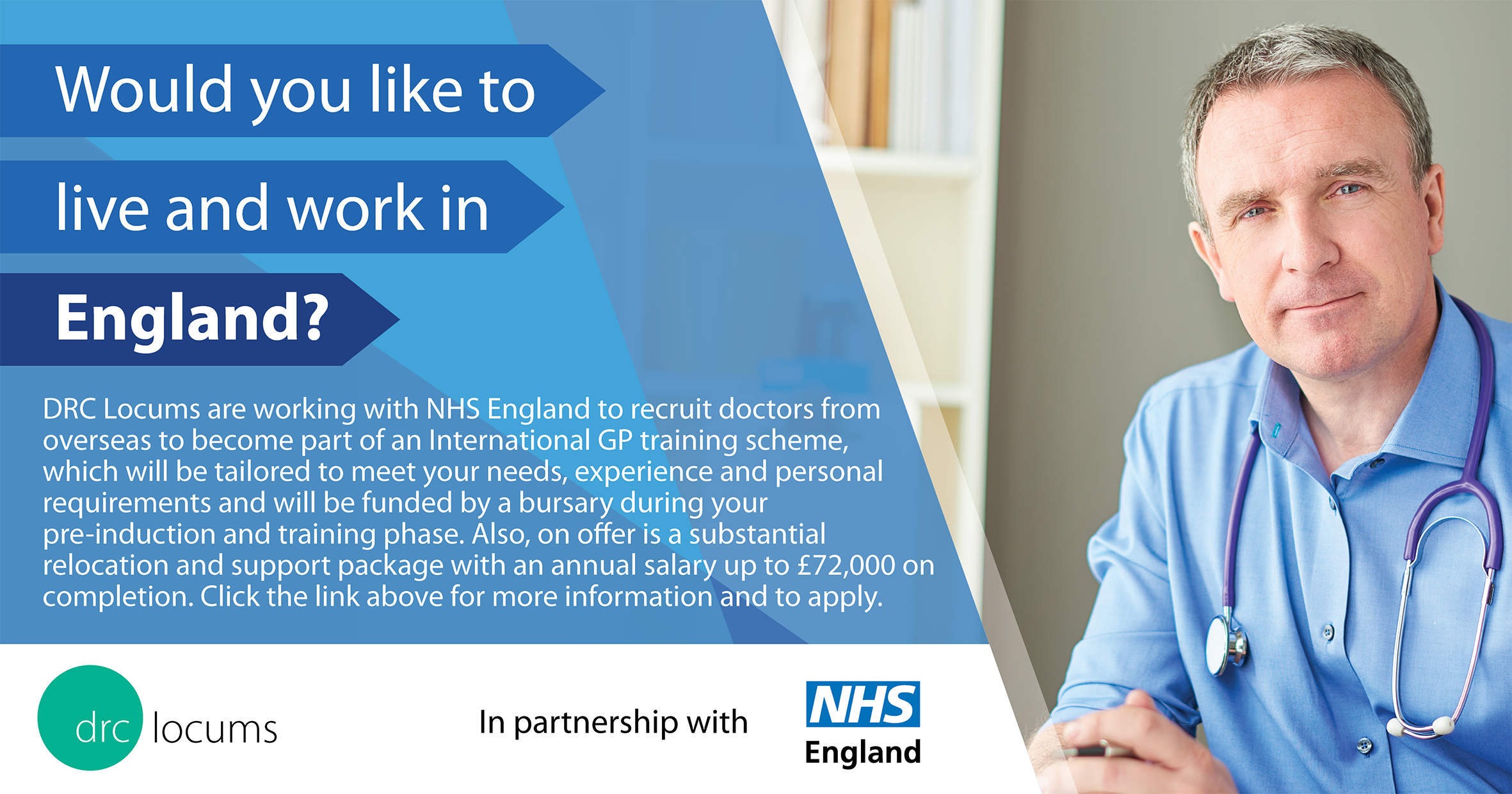
DRC Locums is working in partnership with NHS England to recruit doctors to join an international GP training scheme offering many great benefits including a generous relocation and support package.
We are currently recruiting for GP practices in East Surrey & Sussex and Kent & Medway and will be carrying out fully paid expenses interviews during the last week of November in Maidstone.
For more information on this great scheme and the benefits offered, please contact our team today on +44 (0) 1908 545 962 or apply on the following link https://www.drclocums.com/international-gp-recruitment
Why come to work as a GP in Kent and Medway
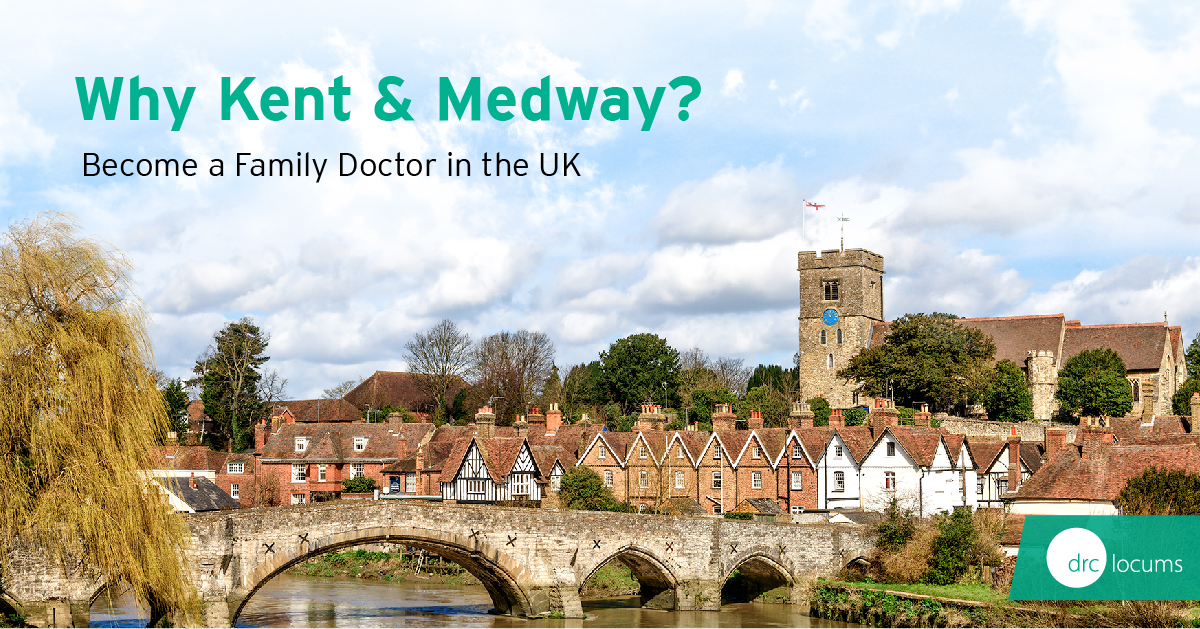
Moving to the UK to work as a family doctor (known in the UK as a general practitioner, or GP) provides huge opportunities for both your working and your personal life. A variety of areas are currently recruiting GPs, so whether you can see your family living in a vibrant city full of museums and activities; exploring the country's beautiful woodland and countryside in a rural practice; or enjoying all the pleasures of the seaside in a coastal area, there is sure to be something to suit you – all less than an hour by train from London.
Kent and Medway is a diverse and exciting destination with so much to see and do, steeped in history and rich in military and maritime heritage. Many of Kent's towns exude historical charm, full of exciting culture and hidden gems, while its numerous pretty villages have a traditional friendly charm beloved by locals and visitors alike.
Similarly, you can choose what kind of surgery you prefer to practice at, from a large busy surgery where you can truly expand your clinical practice, to a small village surgery where the emphasis is on building relationships with the patients on your list: list sizes in the county vary from under 2,000 to more than 36,000.
On a typical day, 30 to 40 appointments are offered to your patients, with the occasional walk-in emergencies. That means at least 30 ten minute sessions in which to welcome, introduce, glean, triage, diagnose, reassure, comfort, investigate, refer, treat, prescribe and follow up. The work is challenging but often exhilarating, with plenty of variety and much to pique your interest.
No two appointments are the same and you never know what will be coming up in the next appointment, giving you a fantastic opportunity to expand your clinical practice.
Then there are the phone calls. An average day probably involves ten or so calls to patients. In areas where there is a high elderly population, home visits may be required daily, and can range from two to eight visits.
Most GPs agree that the best thing by far about the job is the patients. The privilege you feel to have them trust in you and respect your decision-making – albeit not 100% of the time – is immense, and hugely rewarding; being able to fix their problems and make them feel better, control their pain and provide some comfort is extremely gratifying.The people make this job.
There are several qualities you need to have in your doctor's bag to succeed as a GP in the UK. Professionalism is of the utmost importance, as is the ability to keep your cool under pressure. Resilience is vital: no matter what happened in your last appointment, it cannot affect those still to come. Empathy is also essential: your patients may be terrified that their headache is a brain tumour or that they are going to lose a loved one, and need to be handled with kindness and respect. Above all, the quality that you really need is a sense of humour, to bolster you through the non-stop pace – and occasional chaos – of general practice in the UK.
In evenings and at the weekend, you can get out and explore your new home, known as the Garden of England, with its 4,000 kilometres of countryside and 560 kilometres of stunning coast. The area boats some of the best beaches in Europe – voted by Lonely Planet – as well as exciting art galleries, elegant stately homes, romantic getaways, fun-filled family attractions, and miles and miles of exhilarating foot and cycle trails.
Getting to and around the area couldn't be easier with its excellent public transport links: Medway, for instance, is only 30 miles from London and 40 miles from the Channel ports and Eurotunnel. The high-speed train from London St. Pancras takes just 35 minutes to reach Medway itself, yet housing prices in Kent are on average 60% lower than its London counterparts.
If you see yourself living somewhere with beautiful beaches, stunning castles, exciting culture and delicious food and drink, then you've come to the right place.
Get in touch now to find out how you can take the first steps towards your exciting new life in Kent.
Move to Kent & Medway-Enhance your career as a GP in the UK

Move to Kent & Medway – Not far from London, the Channel ports and historical towns & villages await you. Enhance your career as a GP in the UK
You may have read about the incentives that you get when training to become a GP in England. But what is it like to live in Kent & Medway? Set in the South East of England, Kent & Medway benefits from close proximity to London and the channel ports while also enjoying the peace and charm of a beautiful rural location – it's easy to see why this area is known as the Garden of England.
Peace and calm or hustle and bustle – the choice is yours. The area boasts vibrant cities alongside sleepy English villages, while coastal areas are different again, with proper sea-side towns with beach huts and piers, wind-swept cliff tops, sailing marinas, shingle bays and long stretches of golden sand.
Despite being a rural idyll – the county has 4,000 kilometres of countryside, much of which is designated Areas of Outstanding Natural Beauty – Kent has excellent road and rail links, with its enviable location and high-speed rail links putting it in easy reach of both London and continental Europe.
You will be busy as your career as a GP progresses, but in your spare time there is so much to explore in Kent & Medway that you'll never be bored: with vast swathes of rolling countryside and 560 kilometres of coastline to explore, you will never be short of places to discover.
Explore England's history: there are over 30 castles in the county, from the magnificent Hever and Dover castles, to magical little ruins such as the coastal fortifications at Walmer, or Leeds Castle, believed to be one of the most beautiful in the world.
Kent is a county rich in nature reserves, with over 60 in all, where you can enjoy a pleasant walk or jog, or get involved in local conservation projects and find out more about Kent's diverse wildlife. Heading to the coast, you'll find more Blue Flag beaches than any other county in England, including some of the best beaches in Europe according to Lonely Planet, with sand, shingle and family-friendly bays alongside watersports including sailing, surfing and jetskiing for the more adventurous.
It's also a great county for food lovers, with fantastic produce from local farms and fishermen or seek out anything from traditional fish and chips by the sea to gastropubs and Michelin starred fine dining.
Housing prices are on average 60% lower than in London, while education is free for all children from ages 5 to 18, with more than 500 schools across the area including faith schools, grammar schools and single sex schools for boys and girls.
With so much to offer from this rich and varied area, get in touch now to find out how you can take the first steps towards your new life.
Become a GP in Kent & Medway: The ideal place to call home
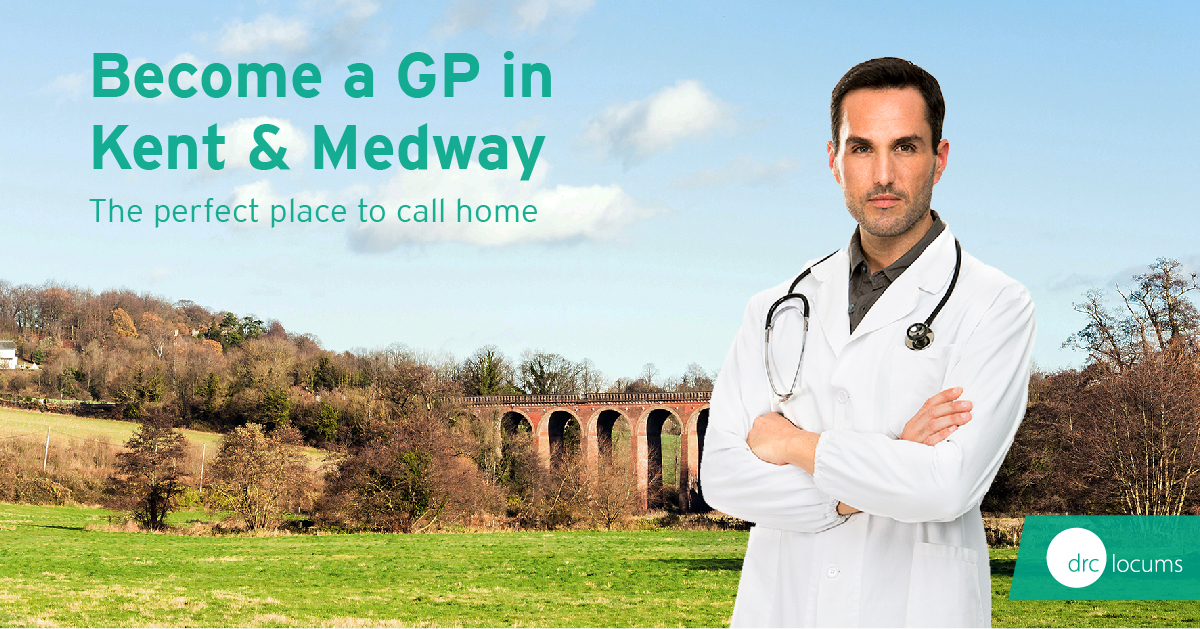
You may have read our blogs in which we outline the training available and the earning potential of becoming a family doctor in England; but what is it like actually to live in and around Kent & Medway?
Kent is a large county occupying the South East corner of England, which means that it's close to both London and Europe, with miles and miles of beautiful coastline to explore, easy access to the continent for weekends away, and a short hop to the capital for culture, glamour and shopping. Known as the Garden of England, the views you are likely to experience are of undulating hills, unspoiled woodland, peaceful farmland and village church spires, with huge swathes of the county designated Areas of Outstanding Natural Beauty.
Kent & Medway offers something for everyone. If you enjoy exploring the outdoors, there is plenty to enjoy here, with a vast network of picturesque walking and cycle routes; yet high speed train links mean that you can be in London in as little as 38 minutes, while, heading south, Eurostar whisks passengers to Paris, Brussels and Marseilles in a matter of hours.
There are a number of notable towns and cities in the area, from the cobbled streets, exquisite cathedral and medieval history of Canterbury to the stately spa town of Royal Tunbridge Wells to the shingle beaches and colourful beach huts of Herne Bay; whether you want to live in a historic town with theatres, museums and a busy nightlife, in a class English seaside town or a sleepy village, you are sure to find it here. Indeed, Sevenoaks and Deal were recently placed on the Sunday Times' list of the best places to live in Britain, which takes into account everything from schools and broadband speed to local shops and community spirit.
The county's southern location means that it receives some of the warmest temperatures in the country, with balmy summers and generally mild winters. With coast on two sides of the county, it boasts 560 kilometres of coastline to explore, including some of the best beaches in Europe according to Lonely Planet. If you love getting out on the water then you're in for a treat, with surfing in Thanet, kit-surfing off Dymchurch and jet-skiing off Margate alongside sailing and more; or stick to dry land, where you'll find more Blue Flag beaches than any other county in England, sandy beaches, shingle shores and family-friendly bays for paddling and sandcastling.
Throughout the county you'll find magnificent stately homes, stunning castles, exciting culture, and delicious food and drink, from Michelin-starred restaurants to street markets full of local produce such as Whitstable oysters, succulent Romney Marsh lamb or locally caught Dover sole. There's also plenty for sports fans, with 60 golf courses alongside motor racing circuits, cricket grounds, canoeing and kayaking, athletics and running clubs, riding stables and sailing clubs, and much more.
Whatever your interests and wherever you see yourself and your family living, you are bound to find it in the laidback charms of Kent & Medway. Get in touch now to find out how you can make the move to a more relaxed pace of life.
Become a GP in Devon and Cornwall: The perfect place to call home
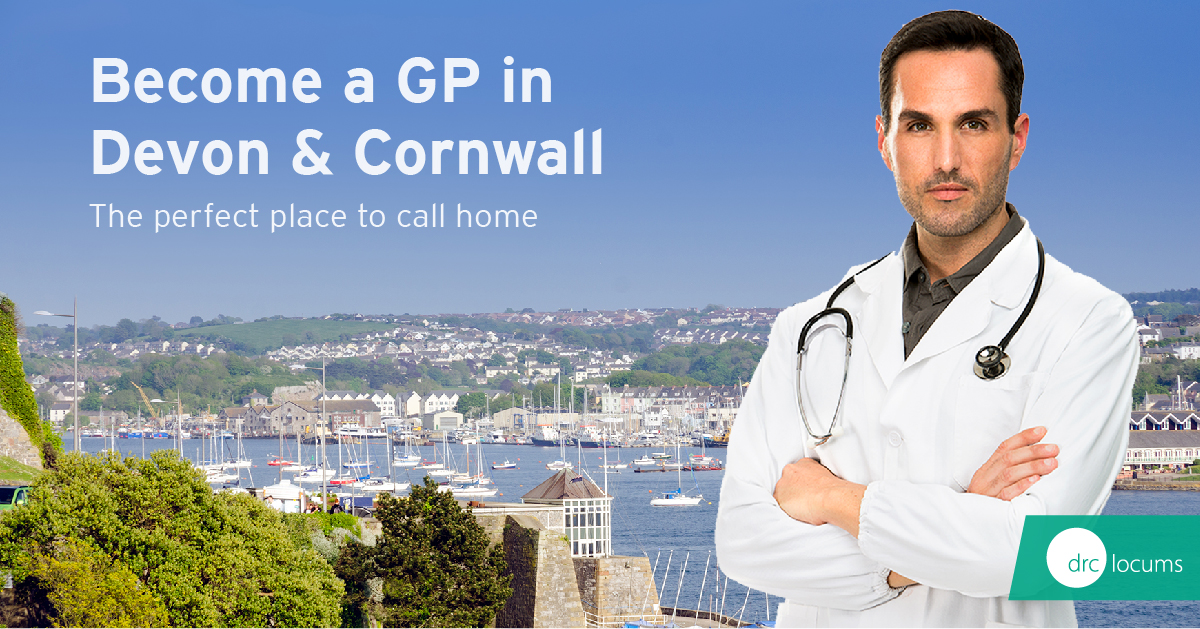
You may have read our blogs in which we outline the training available and the earning potential of becoming a family doctor in England; but what is it like to actually live in a place like Devon and Cornwall?
The South West of England is arguably one of the best places to live in the UK: in fact, Devon was recently voted as England's best county to live in by Country Life Magazine, taking into account everything from crime figures to food to green space, council performance and composting.
Often, assessing your work-life balance can be the catalyst for a change in location and in priorities: it's all too easy to get caught up in the daily monotony of the city, dashing to work, working inflexible hours, getting caught in traffic. The two counties of Devon and Cornwall are renowned for their relaxed, friendly way of life, and whether you see yourself living in a vibrant city full of museums and restaurants, exploring beautiful woodland and countryside or making the most of the seaside, there is sure to be something to suit you.
While the people here work just as hard as in other areas of the country, the workplace atmosphere is can be much more flexible and friendly, and the approach to life is laidback and relaxed: it's a world away from gruelling commutes and overcrowded streets.
While the UK may be famous for its rain, coastal areas in the South West have more than their fair share of sunshine, receiving an average of 1600 hours of sunshine each year. With warm summers and mostly gentle winters, it's a fantastic place to live for those who love to get outside, whether it's hiking on wild moors or spending time on the numerous stunning beaches, surfing, sailing or simply poking around in rock pools.
Devon is the larger of the two counties, still within easy reach of London, but with over a third of the county designated as Areas of Outstanding Natural Beauty and 450 miles of stunning coastline. Don't worry that life here is too quiet: Devon has two busy cities in Exeter and Plymouth, plus numerous costal and market towns, and a lively food and arts scene. One the largest cities on the south coast, Plymouth has a rich maritime heritage, a stunning waterfront and a vibrant cultural life, while Exeter is a Roman-walled city of squares and cobbled streets, renowned for its high quality of life and flourishing arts scene.
For times when you want to get outside and explore, Devon never disappoints. Its famous Dartmoor National Park has a rugged beauty all of its own, famous for its granite tors, stone circles and ancient villages, while Exmoor National Park offers woods and streams, large areas of moorland, and spectacular coastal views.
Cornwall has a smaller population and is well known for its beaches in particular. It boasts the Eden Project, with its distinctive domes housing rainforest and Mediterranean plants; or walk across the causeway from Marazion to the stunning island of St Michael's Mount with its cobbled streets, sub-tropical gardens and stunning castle.
Bodmin Moor is a wild and beautiful Area of Outstanding Natural Beauty for when you tire of the beautiful and varied beaches; but don't think that life in Cornwall is completely provincial – its attractions include Tate St Ives, an offshoot of the main London gallery, and the Minack Theatre on the clifftop above Porthcurno Bay.
Of course, if you love surfing or water sports then Devon and Cornwall are idyllic: the north coast of both counties has some of the best surfing in the world, and sailing, water polo and other water sports are popular activities. Together, the two counties are home to some of the most stunning beaches in the country.
There are plenty of attractions for sports fans on dry land too. Both Plymouth and Exeter have football league clubs, while Truro City is the top-level football team in Cornwall. Exeter is the home of the Chiefs, who won England's rugby Premiership in 2017, and the Cornish Pirates rugby club is based in Penzance. Devon is also home to two racecourses, Exeter and Newton Abbot, while both counties have vibrant sporting scenes that span athletics, cycling, cricket and golf.
Finally, the area is heaven for gastronomes. There is a huge variety of restaurants, including some run by celebrity chefs attracted to the area by the quality of the local produce. The renowned pasty is a popular meal while the cream tea – scones, jam and clotted cream – is served at many cafes and restaurants. Cider is the traditional drink, with a large number of local producers.
Whatever your interests and wherever you see yourself and your family living, you are bound to find it in the laidback charms of Devon and Cornwall. Get in touch now to find out how you can make the move to a more relaxed pace of life.
Earn up to €82,000 as a Family Doctor in Devon & Cornwall

Why come to work as a GP (family doctor) in Devon & Cornwall?
England's National Health Service is commonly regarded as a national treasure, with its primary principle of free healthcare for all at a point of service being a matter of great pride for the vast majority of English people.
GPs are the foundation of the NHS: the first point of call for most patients, working together with not only the patient themselves but a variety of healthcare professionals from pharmacists to mental health services to physiotherapists to social care services, managing everything from minor conditions to acute illness and long term ill health. As well as being well-regarded by the population that they serve – nine out of ten patients rate their experience of their GP practice as “Good” – the British government also recognise the importance of the work carried out by GPs, investing an additional £2.4bn a year into general practice by 2021.
General practice in England is varied, interesting, well-regarded and well-supported, but what other reasons are there for pursuing a career as a GP in England, especially Devon & Cornwall?
• For many people, the bottom line is money, and the NHS offers a competitive pay package for GPs. While on the International GP training scheme, you can expect to earn a minimum of £3,000 per calendar month, increasing to £68,000-£72,000 per year once you have gained entry to the National Medical Performers List, alongside benefits including paid maternal and paternal leave and a generous pension.
• As well as financial support, the programme also offers a comprehensive range of practical and logistical support, including help finding a home, schools and other local facilities; help with day to day tasks such as setting up bank accounts; help with relocation costs; and support for your partner if they wish to improve their English in order to find work. We are with you every step of the way.
• Extend your clinical experience as part of a team of 1.3 NHS employees, many of whom have themselves come to England from across the globe.
• Speaking of diversity, there is a wide mix of cultures across the country – more so in the large cities than in the countryside – with foreign communities from most parts of the world.
• When it comes to history, of course, Cornwall and Devon is steeped in it: from magnificent cathedrals to mighty castles, ancient ruins to the mythology of Arthur and the Knights of the Round Table, and stately homes to hillside chalk drawings.
• Wherever you see yourself and your family living, you can find it in the counties of Devon and Cornwall: whether you want to live in a sleepy rural village or a vibrant city such as Plymouth or Exeter; a busy town or in the glorious seclusion of the countryside; among hills and dales or by the sea. Equally, you can choose to work in a bustling multi-disciplinary practice which will enhance your clinical practice or a small, intimate surgery where you can focus on building a relationship with your patients – and the programme allows you to try several before you make your final decision.
• We offer peace of mind. Any GP recruited under the programme and working in the UK before 29th March 2019 will be able to stay and enjoy the same rights and benefits as now, and qualifications of EU doctors will continue to be recognised as long as they were obtained before 29th March 2019.
• Finally, it would be impossible to talk about living and working in England without discussing the weather! What British weather lacks in extremes, it more than makes up for in variety, with the average English day including anything from the sun to snow to thunderstorms – but never too much of anything. Summers are usually warm (but may be wet), winters are generally cool (but may be mild) – a moderation which is reflected in the national character. Devon and Cornwall, in particular, are blessed with a lovely climate, which makes getting outdoors to explore its numerous charms, from wild moors to rolling hills to stunning coastline, as easy as it is enjoyable.
Want to know more? Contact us for more information, and to discuss your new life in England.
Why come to work in general practice in England?
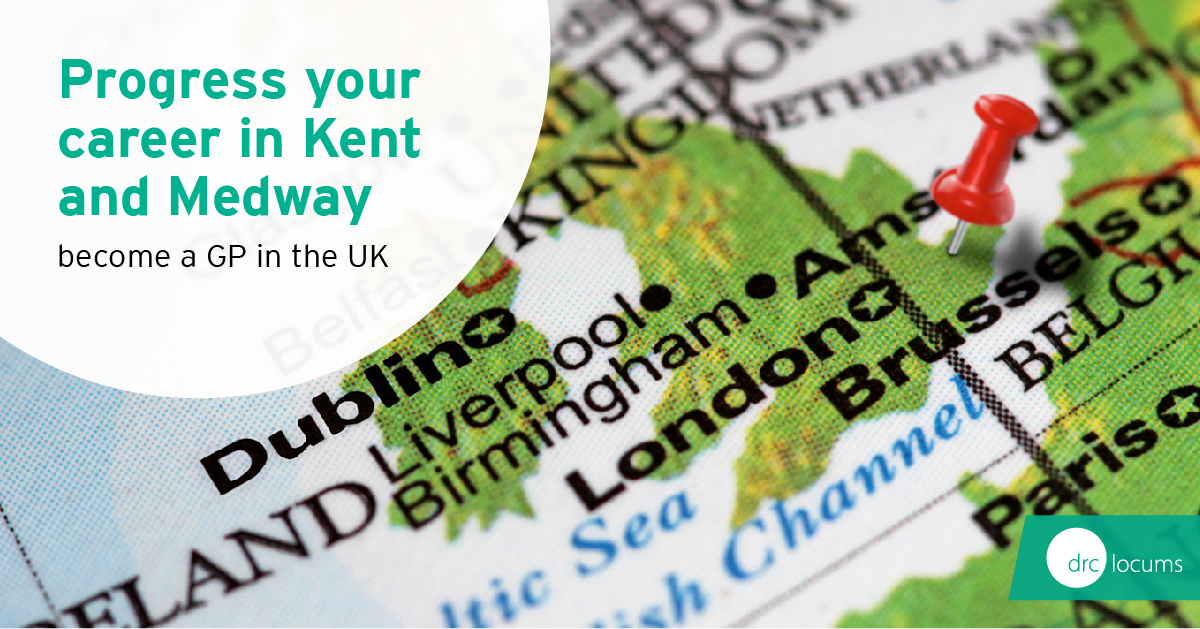
England's National Health Service is commonly regarded as a national treasure, with its underlying principle of free healthcare for all at a point of service being a matter of great pride for the vast majority of English people.
General practitioners (GPs) or family doctors are the foundation of the NHS: the first point of call for most patients, working together with not only the patient themselves but a variety of healthcare professionals from pharmacists to mental health services to physiotherapists to social care services, managing everything from minor conditions to acute illness and long term ill health. As well as being well-regarded by the population that they serve – nine out of ten patients rate their experience of their GP practice as "Good" – the British government also recognise the importance of the work carried out by GPs, investing an additional £2.4bn a year into general practice by 2021.
General practice in England is varied, interesting, well-regarded and well-supported, but what other reasons are there for pursuing a career as a GP in England?
• For many people, the bottom line is money, and the NHS offers a competitive pay package for GPs. While on the International GP training scheme, you can expect to earn a minimum of £3,000 per calendar month, increasing to £68,000-£72,000 per year once you have gained entry to the National Medical Performers List, alongside benefits including paid maternal and paternal leave.
• As well as financial support, the scheme also offers a comprehensive programme of practical and logistical support, including help finding a home, schools and other local facilities; help with day to day tasks such as setting up bank accounts; help with relocation costs; and support for your partner if they wish to improve their English in order to find work. We are with you every step of the way.
• Extend your clinical experience as part of a team of 1.3 NHS employees, many of whom have themselves come to England from across the globe.
• Speaking of diversity, there is a wide mix of cultures across the country – more so in the large cities than in the countryside – with foreign communities from most parts of the world. And while British food doesn't always have a good reputation overseas, a rich history of immigration over the centuries means that even the most average of high streets can usually boast a range of restaurants to tempt most tastes.
• When it comes to history, of course, Britain is steeped in it: from awe-inspiring cathedrals to mighty castles, ancient ruins to mysterious henges, and stately homes to hillside chalk drawings, there is barely a square mile of this island which doesn't carry the footprint of times gone by. At the same time, it is a manageable country: lovers of the seaside will be heartened to learn that you are never more than 70 miles from the coast.
• Wherever you see yourself and your family living, you can find it in England: whether you want to live in a sleepy rural village or a vibrant city; a busy town or in the glorious seclusion of the countryside; among hills and dales or by the sea. Equally, you can choose to work in a bustling multi-disciplinary practice which will enhance your clinical practice or a small, intimate surgery where you can focus on building a relationship with your patients – and the programme allows you to try several before you make your final decision.
• We offer peace of mind. Any GP recruited under the programme and working in the UK before 29th March 2019 will be able to stay and enjoy the same rights and benefits as now, and qualifications of EU doctors will continue to be recognised as long as they were obtained before 29th March 2019.
• Finally, it would be impossible to talk about living and working in England without discussing the weather! What British weather lacks in extremes, it more than makes up for in variety, with the average English day including anything from sun to snow to thunderstorms – but never too much of anything. Summers are usually warm (but may be wet), winters are generally cool (but may be mild) – a moderation which is reflected in the national character.
Contact us for more information and find out how you can start your new life in the UK!
Train. Earn. Live. Become a GP in the UK

The NHS in England is recruiting at least 2,000 suitably qualified overseas doctors into GP practices by 2020. This is called the International GP Recruitment (IGPR) programme.
Initially this will focus on doctors from the European Economic Area (EEA) whose training is recognised in the UK under European law and who get automatic recognition to join the General Medical Council's (GMC) GP Register. The programme will provide support for GPs joining the NHS to navigate any language or relocation barriers and help you settle successfully.
As well as financial support, the scheme also offers a wide-ranging programme of practical and logistical support, including help finding a home, schools and other local facilities; help with day to day tasks such as setting up bank accounts; help with relocation costs; and support for your partner if they wish to improve their English to find work. We are with you every step of the way.
The UK's National Health Service offers a competitive pay package for GPs. While on the International GP training scheme, you can expect to earn a minimum of around €3,400 per calendar month, increasing to €77,000 - €84,000 per year once you have gained entry to the National Medical Performers List, alongside benefits including paid maternal and paternal leave and a generous pension.
We are predominantly looking for family doctors to train and live in the Devon and Cornwall area of England.
The area offers so much to those who work and live here. While the UK as a whole offers advantages such as free education from 5 to 18, its most southwestern counties are renowned for their relaxed, friendly way of life, and whether you see yourself living in a vibrant city full of museums and restaurants, exploring beautiful woodland and countryside or making the most of the seaside, there is sure to be something to suit you.
Both Devon and Cornwall have a mild climate, with warm summers and mostly gentle winters. It's a fantastic place to live for those who enjoy being on the water, whether you surf, sail or simply enjoy walks along the beach and poking around in rock pools.
If you're looking for culture or sports, both Devon and Cornwall offer a variety of theatres, musical events and restaurants, plus several football and rugby teams among other sports including athletics and golf. Seafood restaurants and traditional fish and chips are particularly popular in the many coastal towns and fishing ports, and there are many 'gastropubs' and restaurants run by top chefs attracted by the quality of local produce, including Rick Stein, Nathan Outlaw and Michael Caines.
Working as a GP in Devon and Cornwall offers a fantastic opportunity to advance your career in a unique part of the world. Contact us for more information and find out how you can start your new life in the UK!
Move to Devon and Cornwall. Enhance your career as a GP in the UK

You may have read about the incentives that you get when training to become a GP in England. But what is it like to live in Devon and Cornwall? The far reaches of England's most south-westerly counties are a four-hour journey from London, with a lot to discover and a lot to love for those looking for a more relaxed pace of life.
For many of us, simplifying our lives, finding a better work-life balance or an improved quality of life is a dream, and this is exactly why many people choose to move to this beautiful and laidback part of the UK. While the people here work just as hard as in other areas of the country, the workplace atmosphere is (in most cases) much more flexible and friendly, and the approach to life is laidback and relaxed: it's a world away from gruelling commutes and overcrowded streets.
You will never find a community quite like Devon and Cornwall in any other part of England.
You will be busy as your career as a GP progresses, but in your spare time, there is so much to explore in Devon and Cornwall that you'll never be at a loose end. The mild climate and spectacular coastlines are the two jewels in the area's crown and two reasons why this is such an attractive area to make your home.
Devon is the larger of the two counties, still within easy reach of London, but with over a third of the county designated as Areas of Outstanding Natural Beauty and 450 miles of stunning coastline. Don't worry that life here is too quiet: Devon has two busy cities in Exeter and Plymouth, plus numerous costal and market towns, and a lively food and arts scene. One the largest cities on the south coast, Plymouth has a rich maritime heritage, a stunning waterfront and a vibrant cultural life, while Exeter is a Roman-walled city of squares and cobbled streets, renowned for its high quality of life and flourishing arts scene.
For times when you want to get outside and explore, Devon never disappoints. Its famous Dartmoor National Park has a rugged beauty all of its own, famous for its granite tors, stone circles and ancient villages, while Exmoor National Park offers woods and streams, large areas of moorland, and spectacular coastal views.
Cornwall has a smaller population, and is well known for its beaches in particular. It boasts the Eden Project, with its distinctive domes housing rainforest and Mediterranean plants; or walk across the causeway from Marazion to the stunning island of St Michael's Mount with its cobbled streets, sub-tropical gardens and stunning castle. Bodmin Moor is a wild and beautiful Area of Outstanding Natural Beauty for when you tire of the beautiful and varied beaches; but don't think that life in Cornwall is completely provincial – its attractions include Tate St Ives, an offshoot of the main London gallery, and the Minack Theatre on the clifftop above Porthcurno Bay.
Of course, if you love surfing or water sports then Devon and Cornwall are idyllic: the north coast of both counties has some of the best surfing in the world, and sailing, water polo and other water sports are popular activities. Together, the two counties are home to some of the most stunning beaches in the country.
There are plenty of attractions for sports fans on dry land too. Both Plymouth and Exeter have football league clubs, while Truro City is the top-level football team in Cornwall. Exeter is the home of the Chiefs, who won England's rugby Premiership in 2017, and the Cornish Pirates rugby club is based in Penzance. Devon is also home to two racecourses, Exeter and Newton Abbot, while both counties have vibrant sporting scenes that span athletics, cycling, cricket and golf.
Finally, the area is heaven for gastronomes. There is a huge variety of restaurants, including some run by celebrity chefs attracted to the area by the quality of the local produce. The renowned pasty is a popular meal while the cream tea – scones, jam and clotted cream – is served at many cafes and restaurants. Cider is the traditional drink, with a large number of local producers.
Whatever your interests and wherever you see yourself and your family living, you are bound to find it in the laidback charms of Devon and Cornwall. Get in touch now to find out how you can make the move to a more relaxed pace of life.


